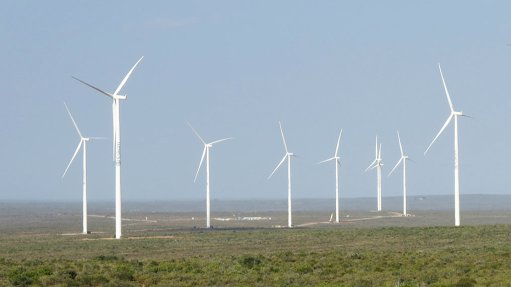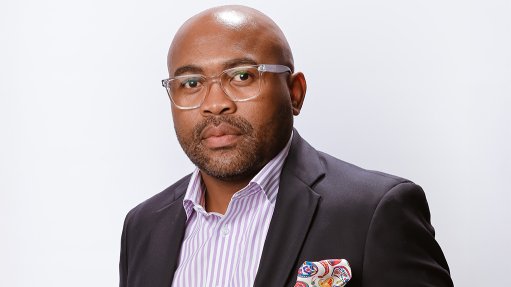DBSA posts record R5.3bn profit, strong loan repayments despite tough economic climate

In this video, DBSA CEO Boitumelo Mosako and Deputy Finance Minister David Masondo discuss DBSA's results and their impact on the South African economy.
The Development Bank of Southern Africa (DBSA) has reported record yearly earnings, with net profit rising 14.4% to R5.3-billion for the financial year ended March 31, alongside the strongest loan repayments in its history.
Speaking at the bank’s results presentation, in Sandton, on September 3, DBSA CEO Boitumelo Mosako explained that the increase in the net profit for the current year stemmed from a solid increase in net interest income and positive fair value adjustments, offset by a currency loss reported following the rand’s appreciation against the dollar.
“The strategic objective is financial sustainability. It is not super profits. But what this shows is we sit even in a stronger position to do more as an institution. We sit in a stronger position to provide the technical assistance that is required to invest in more project preparation activities,” she said.
Sustainable earnings, which exclude one-off items, increased by 13.7% to R5.1-billion compared with R4.5-billion a year earlier. Net interest income grew 8.6% to R8.4-billion, while operating income climbed 12.3% to R8.8-billion.
The return on equity also improved, with return on sustainable earnings up to 9.3% from 9% and return on net profit rising to 9.7% from 9.3%.
Mosako said this was a result of higher levels of profitability and increased equity base when compared to the prior financial year.
The bank’s efficiency measure showed a slight shift, with the cost-to-income ratio increasing to 22% from 21% in the prior year.
Total assets expanded by 2.3% to R120.9-billion from R118.3-billion, while total development loans and development bonds edged down by 0.5% to R114.6-billion from R115.2-billion. Disbursements, covering loans and equity, grew 2.9% to R17.5-billion from R17-billion in the prior year.
Cash generation and collections were particularly strong. Cash flow from operations surged by 24.5% to R6.8-billion, while total loan book repayments rose 19% to a record R27.4-billion from R23-billion the year before.
Asset quality also strengthened. The gross non-performing loan ratio fell to 3.2% from 3.9%, and the net non-performing loan ratio declined to 1.2% from 1.5%. Impairment losses increased slightly to R1.5-billion from R1.4-billion.
The bank’s capital position remained within regulatory thresholds. Its debt-to-equity ratio, excluding callable capital, improved to 105%, down from 123% a year earlier. Including callable capital – authorised but unissued shares that provide a financial backstop – the ratio improved to 78% from 89%, well below the 250% regulatory ceiling.
Mosako explained that the macroeconomic landscape deteriorated over the year under review, with the global growth outlook revised lower, as reciprocal tariffs introduced new challenges, such as the changed global trade dynamics, increased geopolitical tensions, higher costs of doing business, disruption in market access and global supply chain disruptions.
She noted that debt vulnerabilities remained elevated throughout Africa, which impacted on long-term growth and the social fabric as more resources were channelled toward debt service rather than investment in social and infrastructure development.
This was coupled with lower oil prices, which placed additional pressure on the fiscus of oil exporting countries.
In South Africa, Mosako noted that the economic growth rate remained unsatisfactory during the year, with risk factors including long standing structural constraints, such as the port and railway challenges that created bottlenecks and curbed mineral exports. Weak State capacity to implement policies negatively impacted business and financial sentiment.
In addition, challenges associated with US-South Africa relations and early-stage challenges around the Government of National Unity threatened to constrain economic growth.
Municipal credit risk also remained elevated throughout the year, as municipalities continue to face significant financial distress, with issues such as financial mismanagement, poor service delivery, and budgetary constraints remaining prevalent.
Mosako said these challenges called for businesses to reassess their strategies and evaluate their strategic, operational and financial vulnerabilities.
“Municipalities remain a critical sector for development, because municipalities are the institutions that enable service delivery. Yes, we have challenges in those spaces, but we believe that within what we control, within our risk parameters, we cannot sit and join the critics.”
“We have to show up and say: how do we help? How do we support? What solutions do we need to come up with to ensure and support service delivery for our communities?”
Mosako said the DBSA had supported numerous under-resourced municipalities – many of them rural – through a specially designed programme called ‘Partner a District’.
The DBSA unlocked R2.6-billion worth of infrastructure for under-resourced municipalities, as well as R800-million in infrastructure in district municipalities through a programmatic approach. Key projects valued at R39.9-billion were enabled and supported, while projects worth R2.4-billion were prepared and approved.
“We were very deliberate in this programme, in that we were very clear that those we work with must be willing. It’s a willing coalition arrangement: if you are an under-resourced municipality that wants to enable service delivery, that wants to see an improvement in the lives of your people, that wants a strong institution, and that wants to create an economic hub for your municipality, we are ready to work with you. We’ve had eight municipalities joining that programme,” Mosako said.
DEVELOPMENT OUTCOMES
In addition to its financial results, the DBSA detailed its broader contribution to capital formation and development impact during the year under review.
The bank reported that it had supported R91.3-billion in total infrastructure development. This included R22.9-billion in funds catalysed, R17.5-billion in disbursements, and R5.2-billion in direct infrastructure implementation support.
“We know that, as an institution, we can't go at it alone. We are a market maker, and we have to always make sure that we facilitate and enable infrastructure development. Infrastructure development is what drives economic growth. Infrastructure development is what brings dignity to citizens of any nation.
“The recent thing that we have done as an institution is to say, with all of these opportunities that are here on the continent, how do we create new industries? We have decided to put risk capital up and support what we call a high impact investment portfolio where we support the commercialisation of new technologies,” Mosako said.
She highlighted the developmental initiatives arising from its infrastructure programmes. A total of 956 local small, medium-sized and microenterprises (SMMEs) and subcontractors were employed in the construction of projects.
Infrastructure worth R4-billion was delivered by black-owned entities, with R2.6-billion of this undertaken by black women-owned enterprises. Local SMMEs and subcontractors received direct benefits valued at R584-million.
In terms of employment, the DBSA said 35 154 temporary and permanent jobs were facilitated during the year. Its DLabs programme provided training in future skills to 1 643 young people and supported 544 startup enterprises.
The bank also reported on the role played by fund managers it supports, which contributed to development across a wide range of sectors. These fund managers delivered more than 3.8-million tonnes of food and food-related products, impacting a total of 109 336 smallholder farmers and microentrepreneurs. They also sustained 15 430 permanent jobs.
Infrastructure investments through these channels extended into telecommunications. A total of 47 674 km of fibre were built, alongside 548 623 towers built and acquired during the period.
Article Enquiry
Email Article
Save Article
Feedback
To advertise email advertising@creamermedia.co.za or click here
Press Office
Announcements
What's On
Subscribe to improve your user experience...
Option 1 (equivalent of R125 a month):
Receive a weekly copy of Creamer Media's Engineering News & Mining Weekly magazine
(print copy for those in South Africa and e-magazine for those outside of South Africa)
Receive daily email newsletters
Access to full search results
Access archive of magazine back copies
Access to Projects in Progress
Access to ONE Research Report of your choice in PDF format
Option 2 (equivalent of R375 a month):
All benefits from Option 1
PLUS
Access to Creamer Media's Research Channel Africa for ALL Research Reports, in PDF format, on various industrial and mining sectors
including Electricity; Water; Energy Transition; Hydrogen; Roads, Rail and Ports; Coal; Gold; Platinum; Battery Metals; etc.
Already a subscriber?
Forgotten your password?
Receive weekly copy of Creamer Media's Engineering News & Mining Weekly magazine (print copy for those in South Africa and e-magazine for those outside of South Africa)
➕
Recieve daily email newsletters
➕
Access to full search results
➕
Access archive of magazine back copies
➕
Access to Projects in Progress
➕
Access to ONE Research Report of your choice in PDF format
RESEARCH CHANNEL AFRICA
R4500 (equivalent of R375 a month)
SUBSCRIBEAll benefits from Option 1
➕
Access to Creamer Media's Research Channel Africa for ALL Research Reports on various industrial and mining sectors, in PDF format, including on:
Electricity
➕
Water
➕
Energy Transition
➕
Hydrogen
➕
Roads, Rail and Ports
➕
Coal
➕
Gold
➕
Platinum
➕
Battery Metals
➕
etc.
Receive all benefits from Option 1 or Option 2 delivered to numerous people at your company
➕
Multiple User names and Passwords for simultaneous log-ins
➕
Intranet integration access to all in your organisation


















